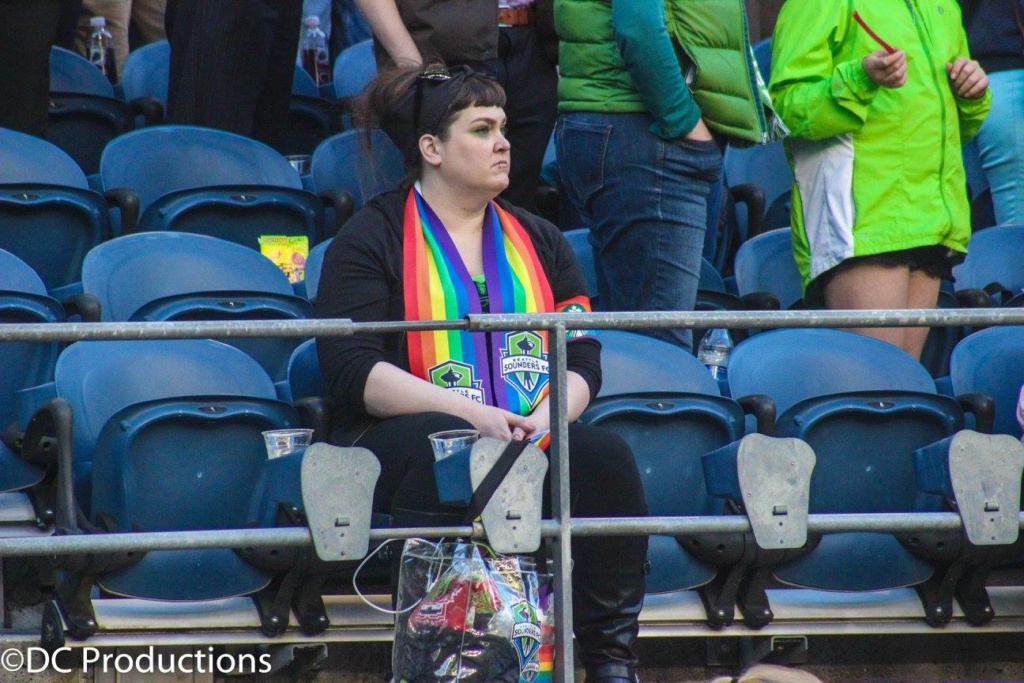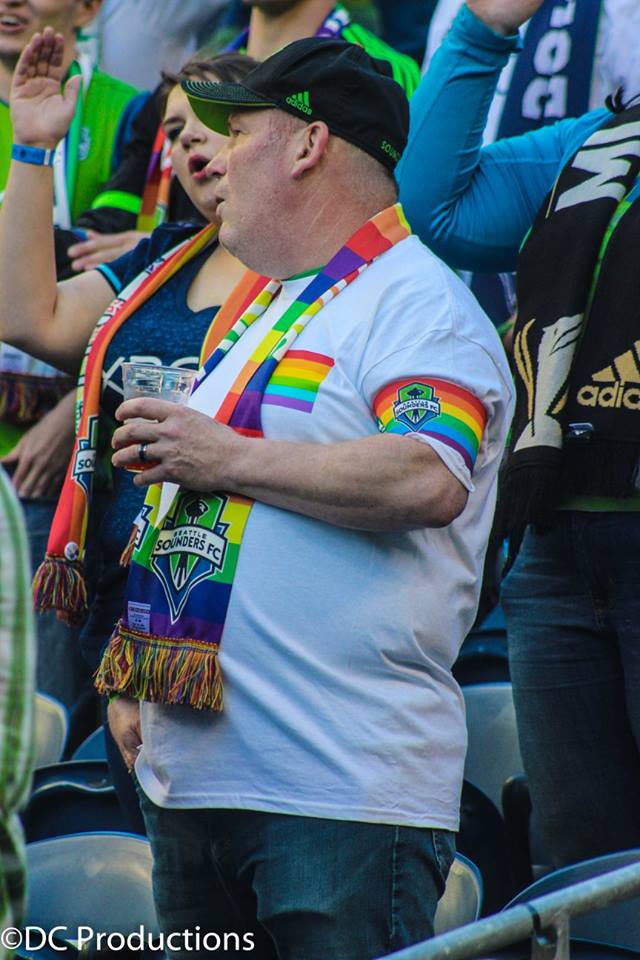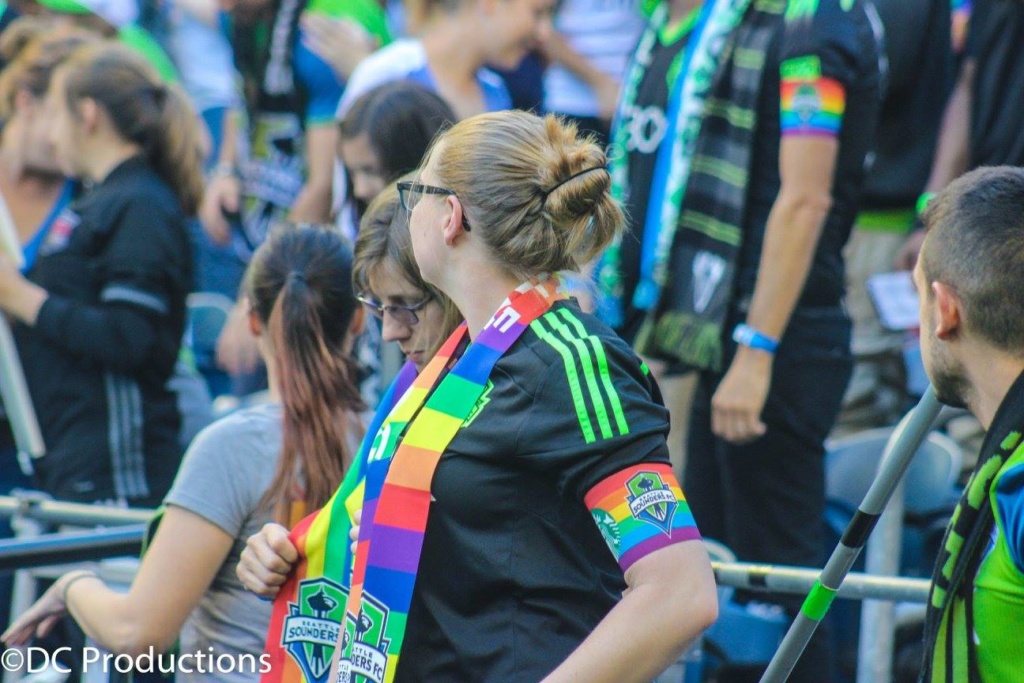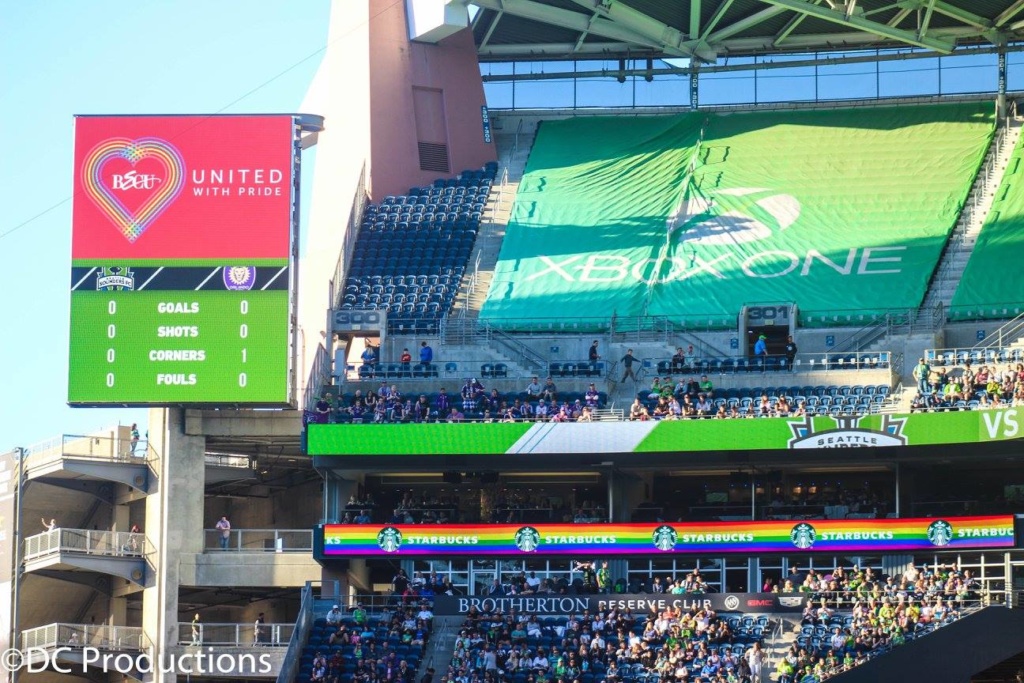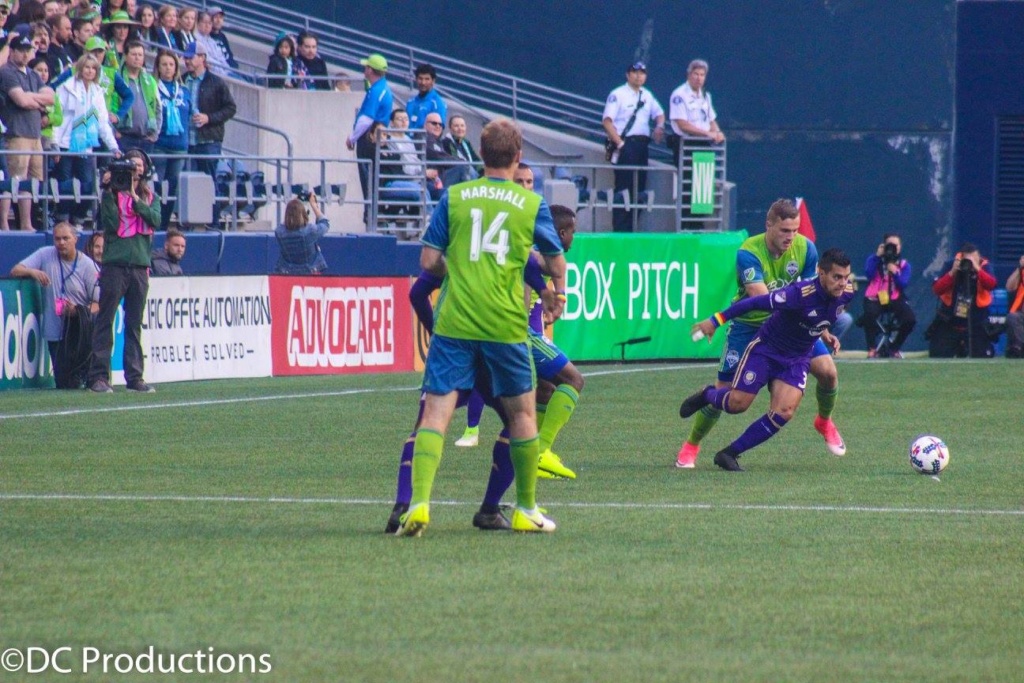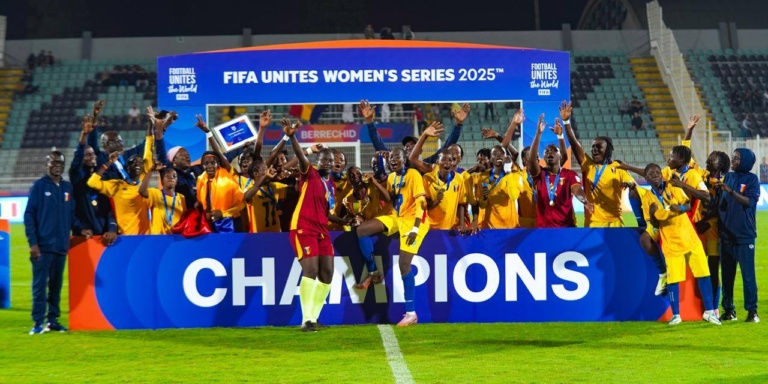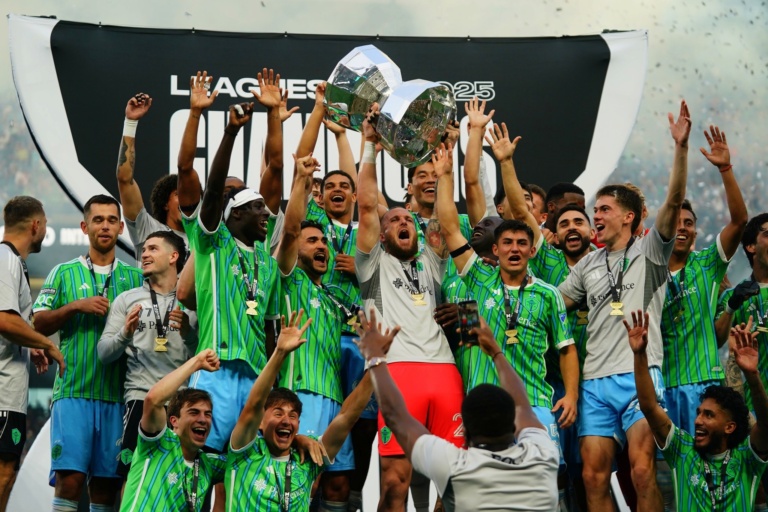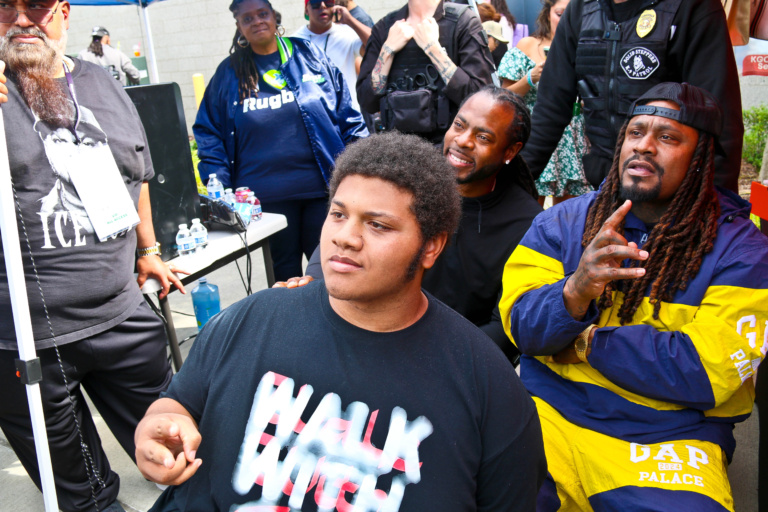
Seattle Sounders FC along with the Mariners, Reign, Seahawks and Storm were proud to lead the first-ever joint endeavor to stand in solidarity with the LGBT community as part of Pride Month 2017. It begun on Tuesday, June 20th, when the kick-off pride week with five straight days of Pride Week celebrations culminated in the Seattle Pride Parade on Sunday, June 25th where Sounders FC was honored as a Grand Marshal.
“We are in a spotlight,” Seattle Sounders FC original Brad Evans said. “And at the end of the day, truly we have the responsibility while the light is shining on us to do what we think is right.”
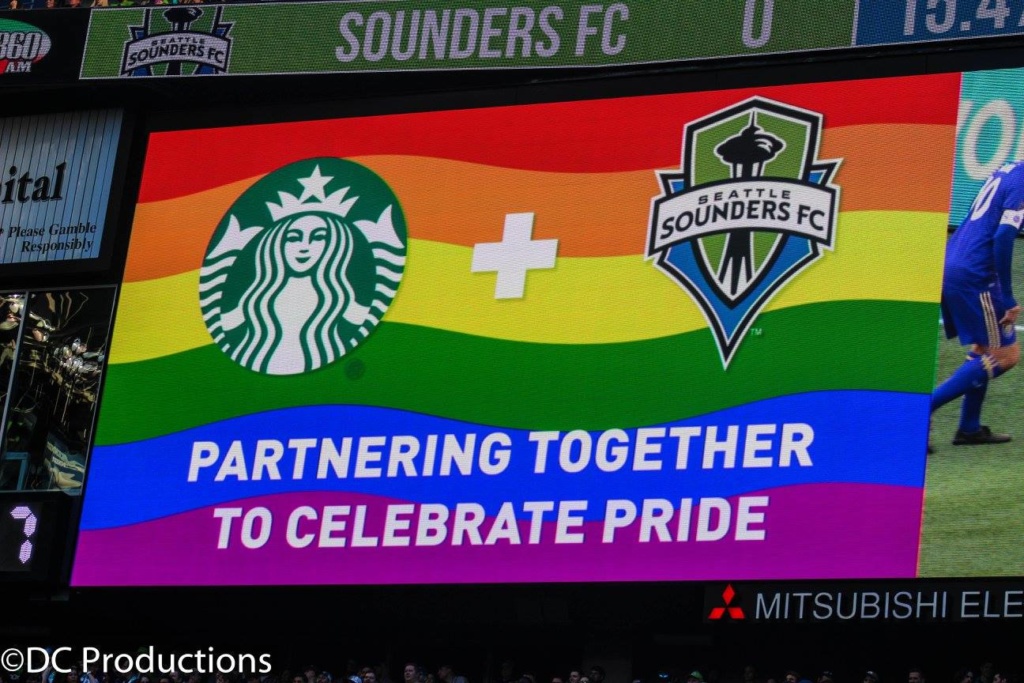
Evans is speaking about inclusiveness and equality and when it comes to LGBTQ pride – and acknowledgment – that the city of Seattle and its soccer club have taken the right approach. It’s a genuine effort to support the club’s diverse fan base and propelled forward by team leaders like Evans, Jordan Morris, Cristian Roldan and so many more. Why? Because it’s in their DNA.
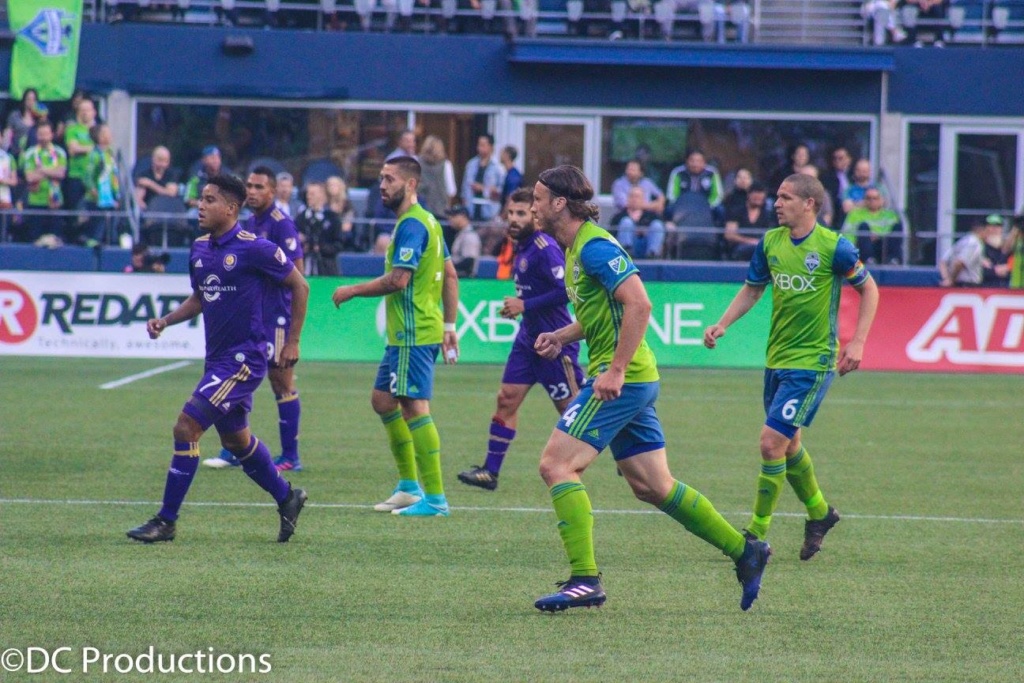
Even though I’m gay, I’ve not always understood why the team’s leadership on this issue was so important. Then I spoke to the players behind the message and found one can clearly see how soccer has the ability to enact positive social change and how Seattle is such a special city to make that happen.
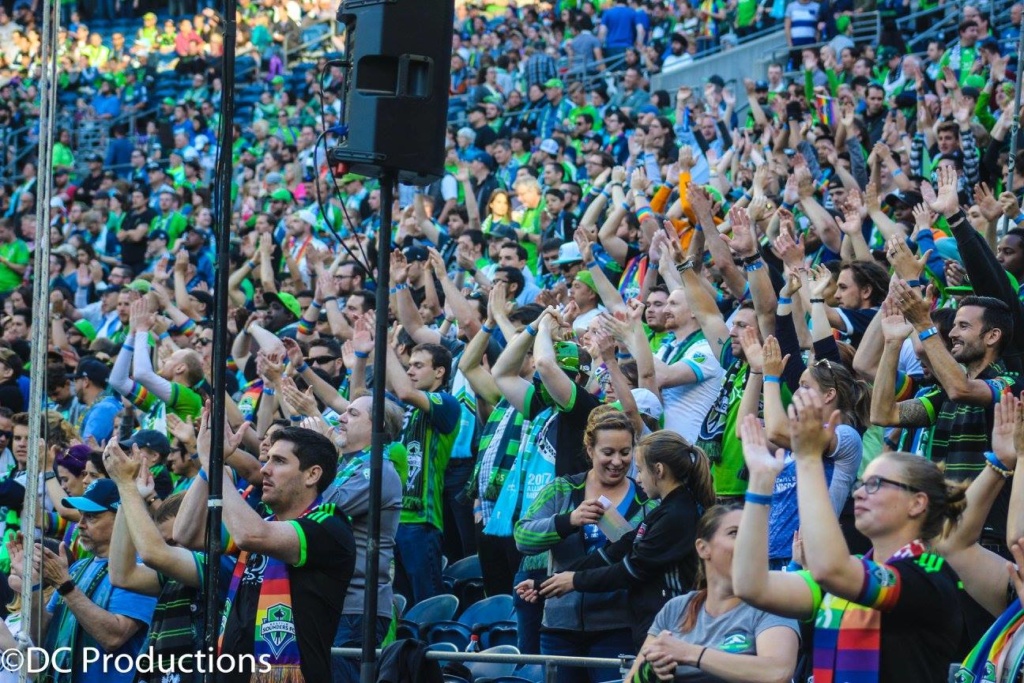
Last June, Morris and Roldan went to the KIRO Radio studios for an on-air interview ahead of the Sounders’ Pride Match. Both Morris and Roldan said changed my outlook on an issue that was far more important than I was giving it credit.
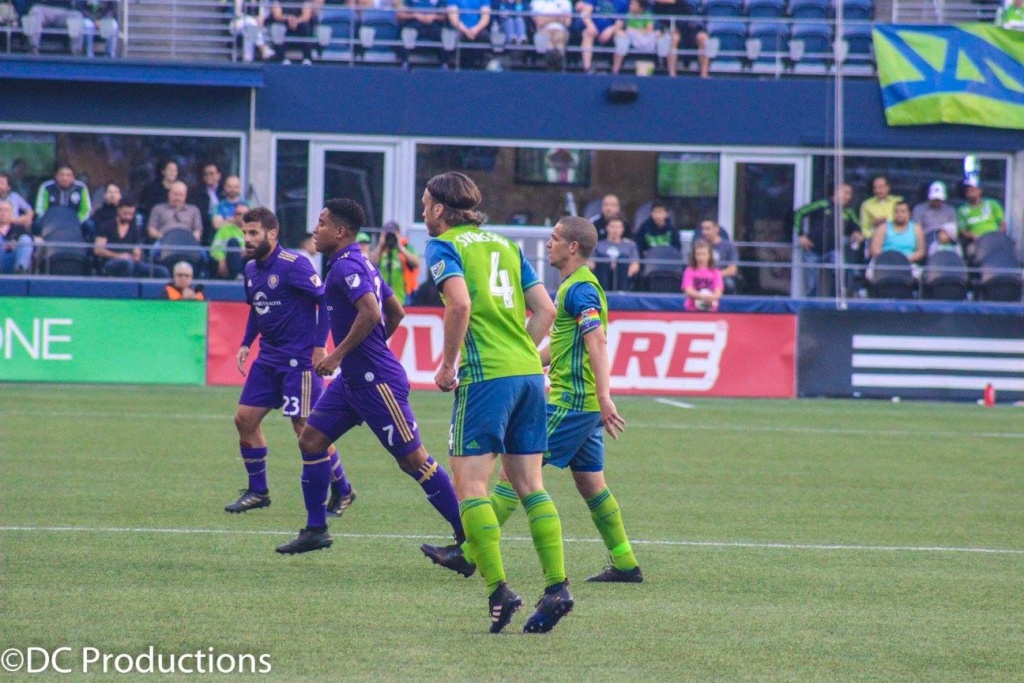
“I think sports are a really good medium to use to show your support,” Morris said. “Sports bring a lot of people together in a lot of ways other things can’t and show their support for the general community.”
Roldan took a similar view, noting that we live in a city that generally shows acceptance to the LGBTQ community, but that’s not the case everywhere, and soccer can be transformative.
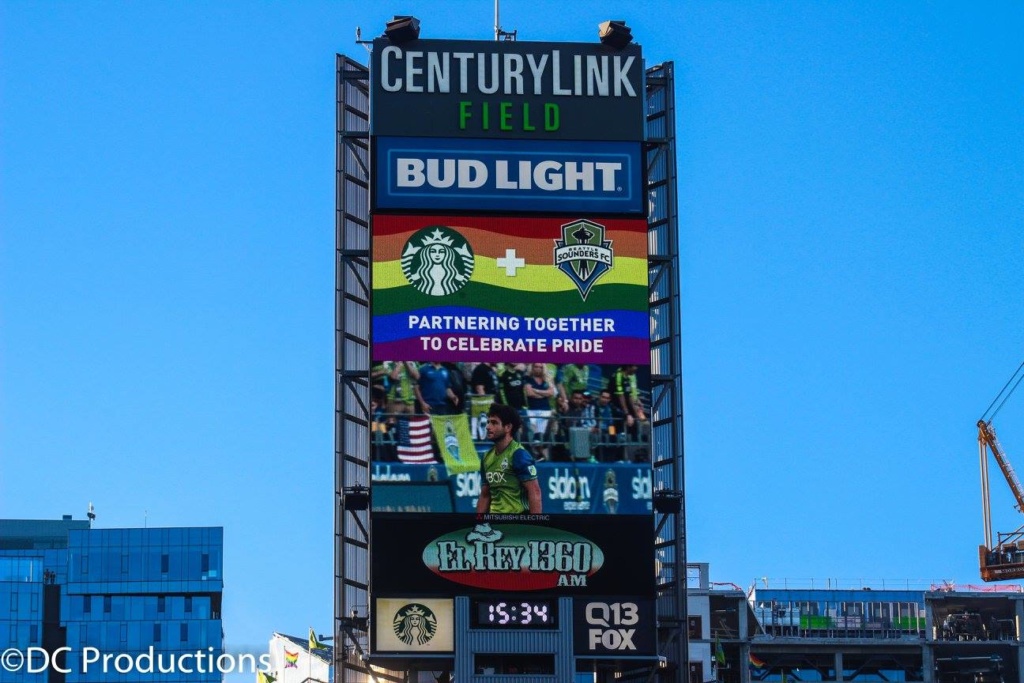
“It’s so much bigger than just the Seattle Sounders,” Roldan declared.
I can’t help but wonder how much more supported I would have felt to hear Morris and Roldan speak so positively about my community. I can’t help but wonder the comfort or pride I would have felt to see Brad Evans proudly don a Pride armband in front of tens of thousands of fans. I can’t really imagine many teams – in or out of MLS – that would willingly take a position on inclusiveness the way the Sounders do.
 Brad Evans doesn’t need to be involved in LGBTQ issues. He’s got a lot on his plate; he always has. Whether it was captaining the Sounders, helping the team earn its first MLS Cup or acclimating to the right back position, Evans could very easily have decided to sit this issue out and focus on other things. But Evans doesn’t sit out issues like this.
Brad Evans doesn’t need to be involved in LGBTQ issues. He’s got a lot on his plate; he always has. Whether it was captaining the Sounders, helping the team earn its first MLS Cup or acclimating to the right back position, Evans could very easily have decided to sit this issue out and focus on other things. But Evans doesn’t sit out issues like this.
“For me it’s a no-brainer,” Evans states. “This is an inclusive city. We want to be a part of that. Equality is number one. To make a successful society, a successful team, I think you have to have that in you.”
Like Morris and Roldan, Evans views the team’s position on equality as much more than a regional issue. He loves that Seattle is progressive on this topic, but he believes the team has the responsibility to be at the forefront of this fight.
“We are under a microscope here,” Evans says. “What we do here that’s positive, I think that spreads like wildfire. And if we weren’t to do it, I’m not sure others would follow along. And I think that it’s good that we take onus on ourselves and we put pressure on ourselves to express our views and our rights on what we feel.”
Evans credits his compassion to how he was raised. As a kid growing up in a conservative city, he remembers his family “always bringing others into the house and making sure that our house was sort of like a safe haven.”
Those values, instilled in him at an early stage, guides his view on how accepting he wants all major league sports to be.
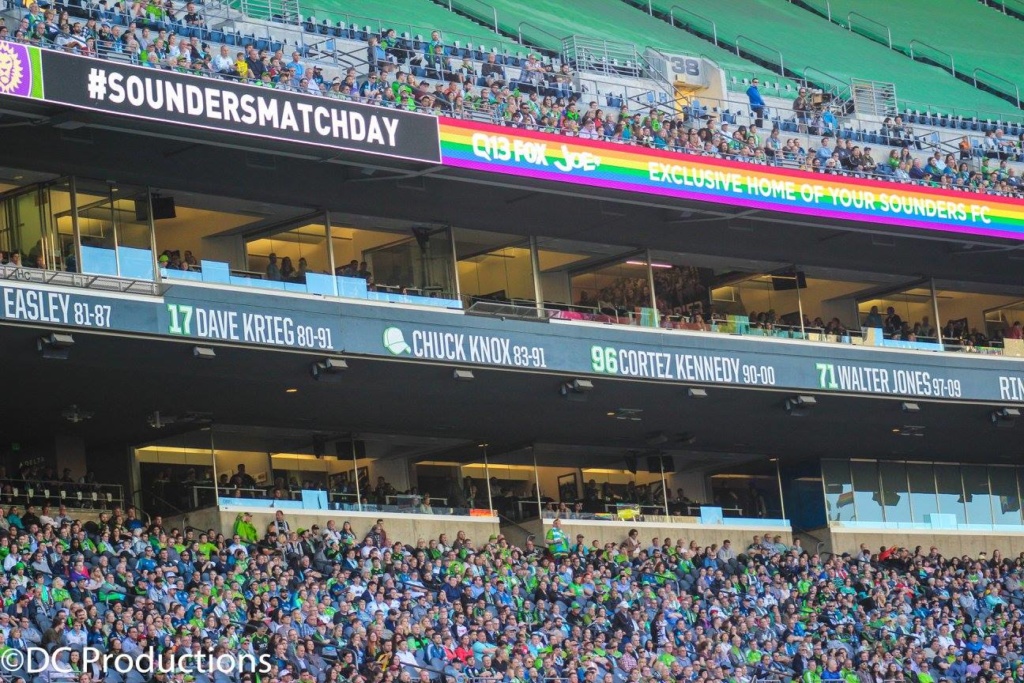
“It’s is up to players like myself to make sure that everybody feels welcome. Nobody on our team, as far as I know, is gay or bi, but if they happen to be, it isn’t an issue,” said Evans. “I think when you’re speaking of a locker room I think – and I’ve said this in the past – a soccer locker room is probably the most accepting.”
 Indeed, for U.S. Soccer and Seattle Reign star Megan Rapinoe, it has been accepting in the locker room, but that doesn’t mean there isn’t more to be done to ensure all are treated equally.
Indeed, for U.S. Soccer and Seattle Reign star Megan Rapinoe, it has been accepting in the locker room, but that doesn’t mean there isn’t more to be done to ensure all are treated equally.
“We’re not there yet,” Rapinoe explained. “We can talk all we want about equality and being progressive, but there are still people who are discriminated against in this country and very blatantly. And in sports, I think we have a real problem with it. I think until everyone is treated equally…I think we all have a responsibility to take care of the communities in which we live in. Obviously, sports are a huge part of that.”
In an interview with Out in 2012, Rapinoe discussed her sexuality for the first time to the media. She has no regrets, though perhaps, she wonders, if she should have done it sooner. For many young LGBTQ soccer fans, she was one of the few professional athletes they could identify with.
“I feel like every time I’m interacting with fans,” Rapinoe recalls, “I have an endless number of stories of parents who have kids who are LGBT who thank me for just being who I am and being a role model for them. It’s a never-ending gift in my life. It’s really quite incredible, actually.”
As much as she loves the kudos from those she’s helped, it’s not why she’s so outspoken. Rapinoe is really seeking to make some major changes in sports.
“Men’s sports are still homophobic,” Rapinoe explained. “I think the more progressive cities, in my opinion, have a responsibility to be leaders. We need to make sure that everybody is represented and everybody feels comfortable.”
As a club, the Sounders have stepped up and are a clear sports leader on LGBTQ equality. And being based in Seattle, with a thriving and active LGBTQ community and fan base, the Sounders could have just as easily sat back and focused primarily on winning another MLS Cup, rather than planning a third consecutive Pride Day event. But that’s not how the Sounders operate. It’s not how Evans operates.
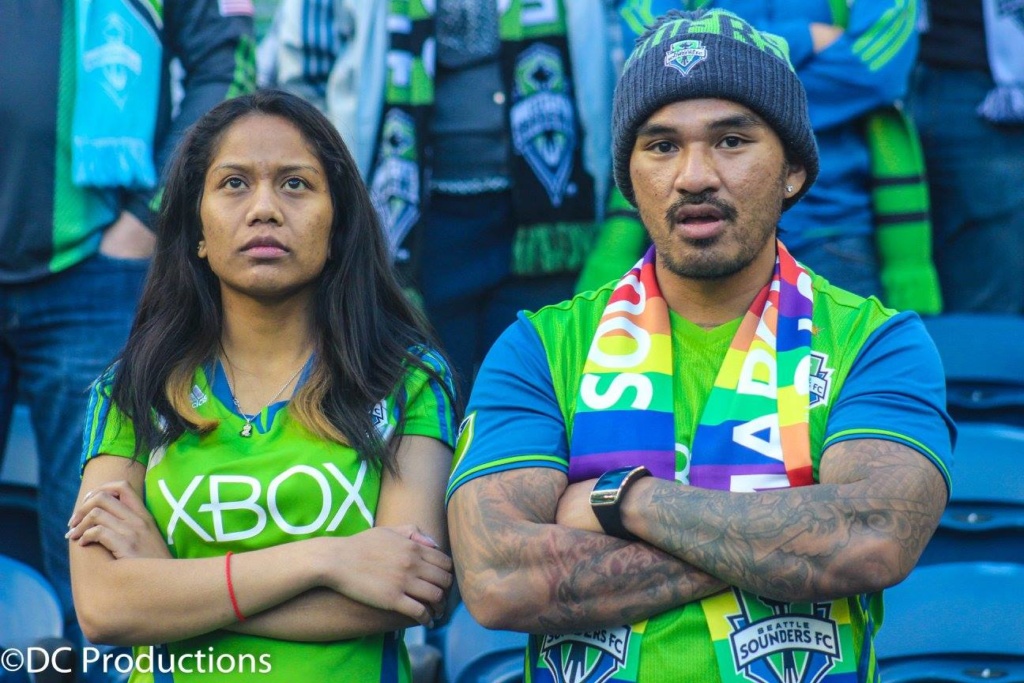
“I don’t want to look back, in three or four years when I’m done, and look back and say, ‘Man, you know, I had this opportunity to make an impact. Why didn’t I do it?’”
To the benefit and delight of many in the LGBTQ community, Evans and the entire Sounders organization are making much of the opportunities they’re offered. And it’s strengthening their bond with the community.
